
Chinese President Xi Jinping says the yuan should be a global reserve currency.
China needs a “strong currency” that can be “widely used in international trade, investment, and currency markets and obtain reserve currency status,” he said in an article in the Chinese Communist Party’s official journal, Qiushi.
According to the head of state, the country needs a “powerful central bank” capable of effectively managing funds, globally competitive financial institutions, and international financial centers that can “attract global capital and influence global pricing.”
The Chinese leadership has long been trying to stimulate the internationalization of the yuan, but it is now becoming clearer what Xi Jinping means when he talks about the need for a “strong currency” and the financial foundation that needs to be built to support it, writes the Financial Times.
He first made these statements in an address to senior regional officials in 2024, but they were not published until last Saturday.
The Chinese leader’s article was published amid heightened uncertainty in global markets. The weakening of the dollar, the upcoming change in leadership at the Federal Reserve, and geopolitical and trade tensions have forced global central banks to rethink their dependence on dollar assets.
“China feels that a change in the world order is more real than ever,” notes Pantheon Macroeconomics economist Kevin Lam. According to him, Xi Jinping’s increased attention to the yuan reflects “new cracks in the world order.”
According to the International Monetary Fund, in the third quarter of last year, the yuan’s share in global reserves was only 1.93%, ranking sixth among all currencies. The dollar accounted for about 57% (compared to 71% in 2000), and the euro for about 20%.
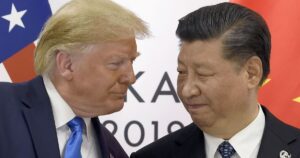
Chinese President Xi Jinping will not attend next week’s Group of 20 summit, dealing a blow to South Africa, which is already facing a boycott by US President Donald Trump, Bloomberg reports.
China’s Foreign Ministry announced on Thursday that Premier Li Keqiang will represent the country at the leaders’ summit, which begins in Johannesburg on November 22. The statement did not explain why Xi, who attended the event last year, will be absent this time.
Xi’s decision means that the summit, created to address geopolitical and economic issues and usually attended by heads of state, will not be attended by the leaders of the world’s two largest economies and another member country, Russia. Last week, Trump said that no American officials would attend the summit after he attacked South Africa with false claims of genocide against white Afrikaners. Russian President Vladimir Putin’s trip remains limited due to an arrest warrant issued by the International Criminal Court,” the statement said.
Other G-20 leaders, including Javier Milei of Argentina and Claudia Sheinbaum of Mexico, will also not travel to South Africa. However, several European leaders, as well as Brazilian President Luiz Inacio Lula da Silva and his Turkish counterpart Recep Tayyip Erdogan, plan to be there.
Lin Jian, spokesperson for China’s Foreign Ministry, said at a regular briefing on Thursday that the meeting in Johannesburg “has important historical significance” as it is the first G20 summit on the African continent, and expressed support for South Africa as the host country.
Li, China’s second-highest-ranking official, has represented Xi at other major international events in recent years. He stood in for the president at the G20 summit in India in 2023 and at the BRICS leaders’ meeting in Brazil in July.
South African officials say in private comments that the absence of the US may make it easier to reach agreement on the declaration, which they believe will be an indicator of the success of the country’s G20 presidency before handing over to Washington in December.
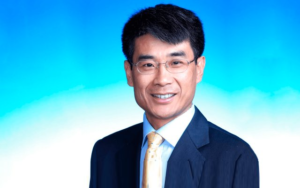
China’s Global Governance Initiative will have a significant economic impact, believes the Ambassador of the PRC to Ukraine, Ma Shenkun.
“It creates new opportunities for the development of trade, investment, and technological exchange, and it can also help the recovery of the world economy after crisis phenomena,” the diplomat noted in a blog.
He pointed out that the Chinese approach envisions “openness, inclusiveness, and mutually beneficial cooperation.”
Ma Shenkun has been serving as the Ambassador Extraordinary and Plenipotentiary of the PRC to Ukraine since 2023.
A career diplomat, he previously held senior positions in the Ministry of Foreign Affairs of China, worked in PRC missions in European countries, and participated in multilateral negotiations in the field of economic and security cooperation.
Source: Author’s column by the Ambassador Extraordinary and Plenipotentiary of the People’s Republic of China to Ukraine Ma Shenkun on the website of the information agency “Interfax-Ukraine”.
GLOBAL GOVERNANCE INITIATIVE, INTERNATIONAL LAW, PRC, UN, Xi Jinping
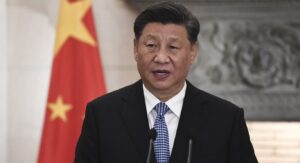
The Chinese president will visit France, Serbia and Hungary this week. His trip comes at a time of strained relations with many European countries over trade and allegations of Chinese espionage.
Chinese President Xi Jinping will visit Europe this week for the first time in five years, with stops in France, Serbia and Hungary.
Mr. Xi’s trip comes at a time of tension with many European countries over China’s support for Russia amid the war in Ukraine, its trade practices and apparent spying activities. The trip will also test Europe’s delicate balancing act between China and the United States.
Xi hopes to avert a trade war with the European Union as friction grows over Chinese electric car exports and reduced access for European companies to the Chinese market. Xi will also encourage French President Emmanuel Macron to seek greater autonomy from the United States in an effort to weaken Washington’s global dominance.
Here’s what we know about Mr. Xi’s trip, which began on Sunday.
What is the significance of Mr. Xi’s itinerary?
Experts say the three countries Mr. Xi will visit support, to varying degrees, China’s drive to overhaul the global order. All of them to varying degrees question America’s post-war world order and seek to strengthen ties with Beijing.
Hungary has close ties with China and is seeking to attract Chinese investment in areas such as electric cars and batteries as Chinese manufacturers expand beyond Asia. Serbia also has warm relations with Beijing and has attracted billions of dollars in Chinese investment.
Mr. Xi’s first stop will be France, where Mr. Macron recently declared that Europe “should never be a vassal of the United States” and turned France into a bridge between the Global South and Western powers.
Despite Beijing’s advances, Mr. Macron said he remains closer to his ally, the United States, than to China.
“I prefer to choose my relationship with the United States, with China, rather than have it imposed on me by one of the two parties that either pushes me one way or pulls me the other way,” he said in an interview with The Economist. However, he added. “It is quite clear that we are not equidistant. We are allies of the Americans.”
Before Mr. Xi’s visit, Chinese diplomats expressed hope that ties between France and China would take a leading role in China’s relations with the West.
Ursula von der Leyen, the president of the European Commission, the EU’s executive arm, will attend talks with Mr. Xi and Mr. Macron in Paris on Monday.
This year is also symbolic for China and the three countries.
It is the 60th anniversary of diplomatic relations between China and France and the 75th anniversary of diplomatic relations with Hungary.
This year also marks the 25th anniversary of the NATO bombing of the Chinese embassy in Belgrade, Serbia, during the Kosovo war, which killed three Chinese journalists and sparked angry protests outside the U.S. Embassy in Beijing. Chinese officials continue to point to the bombing as a sign of NATO aggression and an example of why Russia was right to feel threatened before deciding to invade Ukraine.
When was the last time Mr. Xi visited Europe?
Mr. Xi last visited Europe in 2019, before the coronavirus pandemic, after which he spent time in China, leaving the country’s borders for the first time in the fall of 2022.
The 2019 trip included a colorful ceremony in Rome to celebrate Italy’s participation in China’s Belt and Road global infrastructure project, which aims to expand China’s influence abroad. France rolled out the red carpet for Mr. Xi in Paris and signed more than a dozen commercial and government contracts worth billions of euros, though Mr. Macron warned that “China is playing on our differences” and that “the period of European naivete is over.”
Mr. Xi also visited Greece, where he pledged support for that country in its fight with Britain to obtain the Parthenon sculptures, known as the Elgin Marbles.
How are relations between Europe and China faring?
Since Mr. Xi’s last visit, there has been a growing rift in relations between China and much of Europe. The coronavirus pandemic, Beijing’s embrace of Russia and crackdown on ethnic minorities, and the surge in Chinese exports have sparked a backlash against China in many European countries.
China has quintupled its shipments of automobiles to foreign markets in recent years, and the European Union has recently taken a more confrontational stance toward China’s trade practices. EU authorities have launched an investigation that could lead to restrictions on Chinese solar panel exports and have taken preliminary steps to limit trade in Chinese goods including electric cars, wind turbines and medical devices.
Italy has also told China that it will no longer participate in its Belt and Road Initiative, and last month within a week, six people in Europe were charged with spying for China, indicating that European countries are stepping up measures to combat Chinese espionage.
At the same time, European countries have different views on how to engage with Beijing and capitalize on economic opportunities, and some fear the imposition of European tariffs.
Mr. Macron and German Chancellor Olaf Scholz also believe China’s influence will be crucial to ending the war in Ukraine.
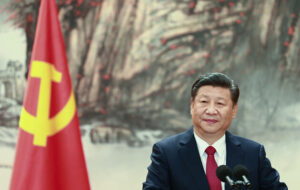
Chinese President Xi Jinping will seriously consider a visit to South Korea, he said before the opening of the Asian Games on Saturday, Yonhap reported, citing a senior official.
“This means that President Xi knows it is his turn to visit South Korea,” the official said on condition of anonymity, adding that Xi’s visit has been “long delayed.”
Xi Jinping last visited South Korea in 2014. President Yun Seok-yol extended an invitation to Xi Jinping during a meeting on the sidelines of the G-20 summit in Bali, Indonesia, in November 2022.
It is planned that the visit could take place as part of efforts to bring peace to the Korean Peninsula.
According to Yonhap, citing a South Korean senior official, Xi Jinping also said that China appreciates Seoul’s efforts to resume the long-suspended annual trilateral summit between South Korea, China and Japan and that Beijing welcomes the trilateral summit at an appropriate time.
It is noted that the trilateral summit was last held in 2019.
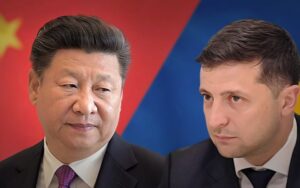
Ukrainian President Volodymyr Zelenskyy has held a telephone conversation with Chinese President Xi Jinping.
“Had a long informative telephone conversation with the head of China Xi Jinping. I believe that it, as well as the appointment of Ukraine’s ambassador to China will give a powerful boost to the development of our bilateral relations,” Zelensky wrote on Twitter on Wednesday.